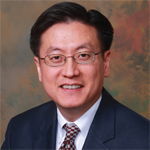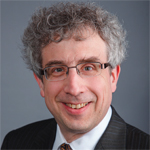
iQoncept/shutterstock.com
Many rheumatologists chose the profession because they wanted to delve more deeply into rheumatic diseases than internal medicine calls for.
“For most, this level of specialization is sufficient and worthy of a lifelong devotion and commitment,” says S. Sam Lim, MD, MPH, associate professor, Medicine and Epidemiology, Emory University School of Medicine, Atlanta. “However, some rheumatologists may find that they have an even deeper interest in a specific condition or group of conditions. Perhaps this was [apparent] all along—a result of a prominent condition in one’s community or a personal experience. In any case, the common result is that a passion has been stirred up that can’t be satisfied otherwise.”
Dr. Lim chose lupus as his specialty because it captured his attention the first time he learned about it in medical school. “I was fascinated by its multi-systemic features, chronic state and, particularly, how it afflicts mostly minority women in the prime of their lives,” he says. “Like many rheumatic conditions, lupus is an amazing juxtaposition of issues—autoimmunity, women’s health and health disparities. There seems to be no end to related areas in which I can devote myself further.”

Dr. Lim
Peter A. Merkel, MD, MPH, chief, Division of Rheumatology, and professor, Medicine and Epidemiology, University of Pennsylvania, Philadelphia, has a specialty niche in vasculitis and scleroderma. His interest in these conditions began during his rheumatology fellowship under the direction of excellent clinical mentors. “My interest and expertise grew with the expansion of my research portfolio,” he says. “Now, I see the full spectrum of patients with both sets of diseases and conduct an extensive number of clinical and translational research projects focused on them.”
Like Dr. Merkel, N. Lawrence Edwards, MD, MACP, MACR, vice chair and professor of medicine, University of Florida, and chair, Gout and Uric Acid Education Society, University of Florida, Gainesville, Fla., chose his specialty, gout and hyperuricemia, after working in the laboratories of world-renowned gout and hyperuricemia researchers, Drs. Bill Kelley and Irving Fox, during his rheumatology fellowship at the University of Michigan. “The exposure and association to these two gout pioneers made the decision easy for me; I fed off of their passion,” he says.

Dr. Merkel
Jonathan Samuels, MD, RhMSUS, assistant professor of medicine, NYU Langone Medical Center, New York, who focuses on osteoarthritis (OA) and musculoskeletal ultrasound, only started pursuing these subdisciplines after he became an attending physician at NYU Langone. “I enjoyed them enough to pursue them both clinically and in research,” he says.


